Fifty years ago, Danone CEO Antione Riboud announced in his famous ‘Marseilles speech’ that “corporate responsibility does not end at the factory gate”. At the time, this was a profoundly unfashionable view, with most corporates happy to admit their overwhelming aim was to make money.
Fast forward half a century, and there’s hardly a brand that isn’t much more vocal about purpose than profits
Sometimes, it’s easy to be cynical about companies’ claims of social values. Let’s face it, there are some obvious commercial reasons for boasting about your sustainability achievements or signaling your support for this or that fashionable cause. But there are increasing signs that some companies may be out of step with the views and opinions of their public.
Also, study our article on Money Talks here.
Budweiser and Adidas are just two global brands that have experienced a backlash recently by misjudging the mood of consumers.
Now WhiteCrow Research has produced research that suggests some companies may not fully understand the sentiment among candidates either.
We canvassed 210 professionals across multiple sectors, asking them about their ‘values’ and whether these align with those of their employers. While we didn’t discover a wholesale disconnect, we did identify a surprising level of apathy on the very issues that the most prominent companies are most enthusiastically promoting.
Understand How you can Be an Agile Shape Shifter here.
Let’s Take a Look at the Results, Question by Question.
Question 1
Do you know your Company’s Mission Statement without looking?
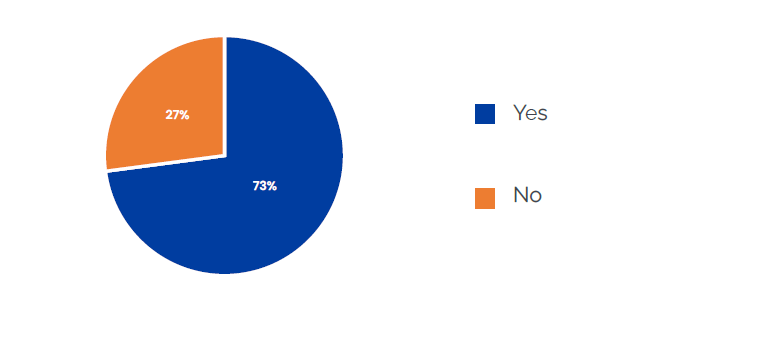
A positive score of 73% might not seem too bad at first glance. But try flipping it around. The fact is, over a quarter of respondents don’t know what their employer is trying to achieve in the world. And that’s only if we take the results at face value. We didn’t call people’s bluff by asking them to recite the relevant mission statement.
Given that such a large number are ignorant of their employer’s stated purpose, one can assume they don’t much care about it either. In other words, they show up to do their job and make some money.
There’s nothing wrong with that per see but it does have implications for talent acquisition strategy. In short, should TA leaders be making such a big play on culture and purpose when this does not seem to be that important in candidates’ minds?
Again, we’re not saying companies shouldn’t have a mission statement, just that it may not be as important to their audience – consumers, candidates, and investors
– as is sometimes assumed.
Also, check out our Article Don’t Worry, Be Happy here.
Question 2
Do you know your Company’s Values without looking?
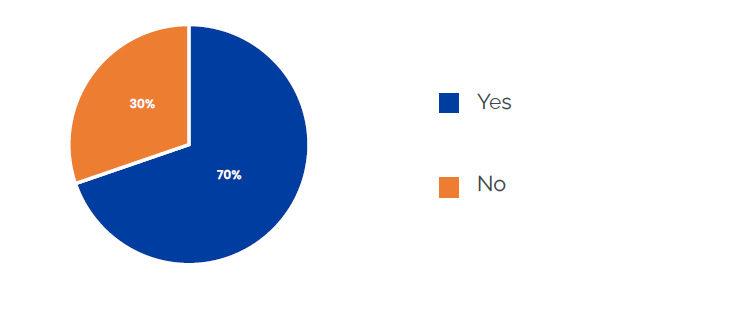
These results are even more sobering, with close to one-third saying they don’t know their company’s values.
Remember, these are never difficult to find. Often, they’re on page one of a company’s website. You’d certainly think you’d know them if you worked there.
Of course, it’s important not to rush to conclusions. The group who said ‘no’ are not necessarily immoral people who only care about filthy lucre.
Probably, they’re very decent sorts who simply think of their employer as a business rather than a moral agent. In any case, most corporate values are notable for their imprecision.
More than one well-known brand proclaims “We do what’s right”.
That’s a fine sentiment, but it’s unlikely to make any consumer change their shopping habits, and – as our results suggest – it won’t cut much ice with candidates either.
And companies are right to be vague. It’s when they get specific that they get into trouble. Just ask Walt Disney or Ben & Jerry’s. But as long as corporate values remain ill defined, they’re a poor tool for TA specialists. Far better to appeal to candidates with money and career development opportunities.
Study our article on “Is Hybrid Working?” here.
Question 3
Rank these Social Issues in Order of Importance: Diversity, Sustainability, Health, Education, Cost of living
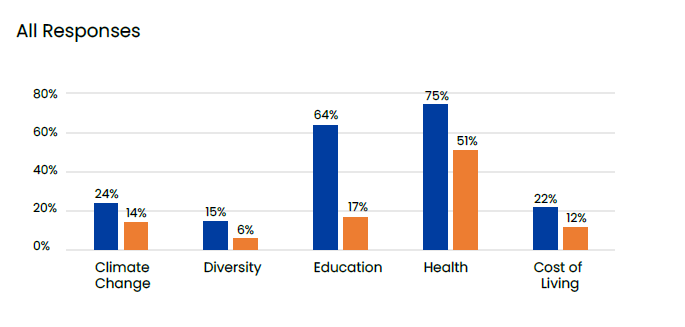
Know what is Candidate Experience and What Companies Get Wrong!
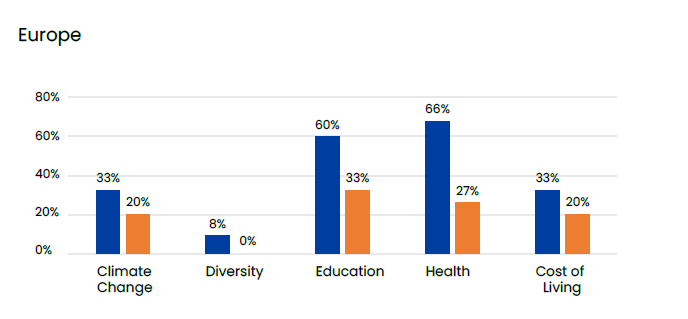
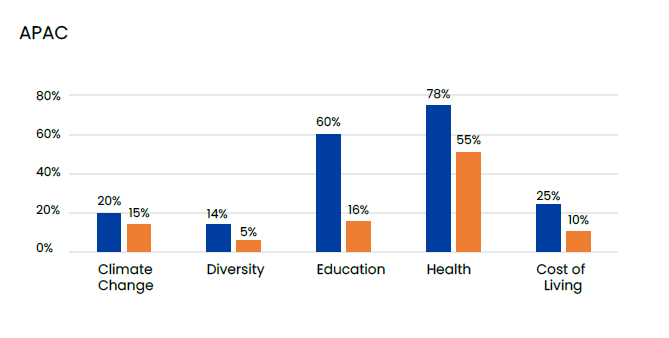
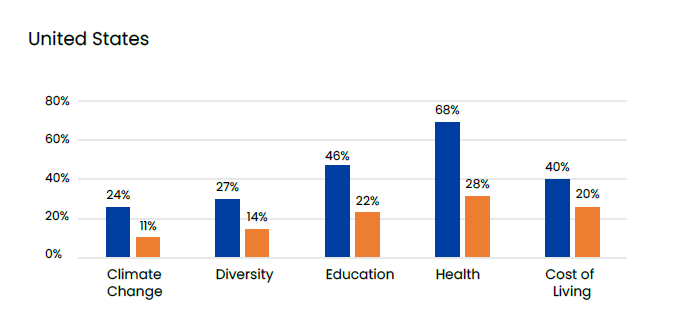
Also, check out our Executive Solutions here.
Now, this is interesting. What are the two social issues that most companies have been relentlessly promoting for the last ten years? Diversity and climate change, no? And yet these two issues appear to rank lowest on people’s list of priorities. Overall, just 14% said climate change was their most urgent concern and a paltry 6% were awarded a top place for diversity.
In Europe, not a single person ranked diversity first.
How to explain this? To be clear, these results do not demonstrate that respondents are unconcerned about either diversity or climate change. However, they do suggest candidates
are unconvinced we’re heading for imminent climate catastrophe and are ambivalent on such concepts as unconscious bias or critical race theory.
Instead, they prioritize more obviously urgent issues such as bringing health and education to billions of underprivileged people.
The only geography where the pattern is noticeably different is the United States. Here, the numbers opting for diversity are much higher. This might reflect the fact that academic theory on race and gender is more advanced in the US and/or that ideas which originate in US Universities more rapidly migrate to the public square. The murder of George Floyd will also enhance people’s concerns about racism and lack of diversity in certain sectors.
Overall, though, we have a global candidate pool that seems out of step with the most publicly proclaimed concerns of global employers. It’s not that companies are doing nothing in health or education, it’s just that they don’t tend to promote these initiatives with the same gusto, they bring to diversity stats or emissions reduction figures.
A while back, we published a piece called “Money Talks” which provided compelling evidence candidates are still mostly motivated by pay. Our research on corporate values serves as a useful companion piece. Yes, most candidates are caring people with a well-developed social conscience.
But the issues they care most about aren’t necessarily the ones you might imagine. They’re also ambivalent about whether their employer shares their opinion on these issues. Often, in fact, they simply want an honest day’s pay for an honest day’s work.
Our complete “Resources from Industry Experts” is now available here.
Check out our Quarterly Published The WhiteCrow Whisper here.
To discuss any of the issues covered in this Article, or to obtain additional
information on Whitecrow Research’s Talent Intelligence capabilities, please contact us:

Matthew Pitt
Global Head of Talent Intelligence
+44 7764 579938
matthew.pitt@whitecrowresearch.com
